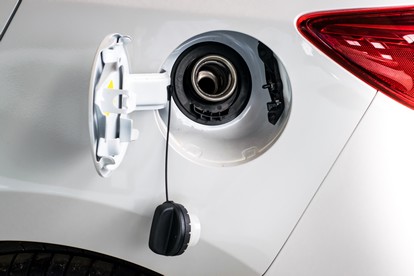
Posted: 28-02-2019
Updated: 05-04-2024
Have you accidentally put petrol in diesel car? It’s surprisingly common, so don’t beat yourself up too much. The important thing is to recognise the mistake as quickly as possible and act fast to rectify it. This month, we look at what you should do if you have used the wrong fuel and why making that mistake could be damaging for your car.
We’re a family-run garage or MOT station in Bromley. Want to speak to one of our experts? Feel free to get in touch for expert advice and quality car services.
Call 020 8460 6666 or email today.
What Happens If You Put Petrol In A Diesel Car
Putting petrol in a diesel car can lead to serious engine damage. Petrol doesn’t lubricate the diesel fuel pump, causing friction and potential pump failure.
Petrol’s lower viscosity may also lead to inadequate lubrication in diesel engines, which results in increased wear and tear. Additionally, petrol ignites differently from diesel that causes misfiring and potentially damages the engine’s components.
If this mistake occurs, it’s crucial to avoid starting the engine and seek professional assistance immediately. Flushing the fuel system, replacing filters, and possibly repairing or replacing damaged components are necessary to restore the vehicle’s functionality. We’ll discuss them in detail in the following section.
How To Fix Petrol In Diesel Car
1. Don’t Start The Engine
Many who make this mistake realise it at the pump, which is a good thing. The important thing is that you do not start the engine. Remove the keys from the ignition, put the car into neutral and push it out of the way before calling your mechanic for a tow.
If you have already set off and realised that something is wrong, pull over and turn the engine off as soon as possible to avoid doing any further damage.
2. Drain Contaminated Fuel
Swiftly remove the mixed fuel from the tank to prevent it from reaching the engine. Utilise appropriate equipment and procedures to ensure complete extraction, minimising the risk of damage to critical engine parts due to petrol’s incompatible properties with diesel engines.
3. Replace Fuel Filters
Install new fuel filters to prevent any remnants of petrol from infiltrating the engine. By replacing these filters, you effectively block the passage of contaminated fuel, thus safeguarding engine integrity and restoring proper fuel flow for optimal performance and longevity.
4. Thorough Fuel System Flush
Conduct a meticulous cleaning of the entire fuel system to eliminate any lingering traces of petrol. This process involves flushing out the fuel lines, injectors, and other components to remove contaminants. This will help restore the system’s functionality and preserve engine reliability.
5. Expert Mechanical Evaluation
Entrust a qualified mechanic from a trusted garage to inspect the vehicle thoroughly for potential damage caused by the petrol contamination.
Their expertise enables them to identify any issues accurately and recommend appropriate repairs or replacements. This will ensure the engine’s resilience and restore it to optimal working conditions.
Petrol In Diesel Engine Vs. Diesel In Petrol Engine – Which Is More Damaging?
There are two possible problems with using the wrong fuel:
- You have added diesel to your petrol tank – which is less of a problem.
- You used petrol in your diesel car – a much more damaging mistake to make if the engine is started.
Let’s take these one at a time.
Diesel in a petrol engine is less likely to result in any permanent damage, but you still want to avoid circulating fuel around the engine if possible. The reason it is less damaging is because petrol engines use spark plugs to ignite the fuel; when diesel is used instead the most likely outcome is that it clogs the spark plugs and doesn’t start as diesel is ignited through compression. If the engine does start then you are likely to begin experiencing misfiring, the engine will cut out, and you could see smoke from your exhaust pipe.
Using petrol in a diesel engine is a much more serious problem and could result in expensive and potentially permanent damage to your engine. Petrol will increase the friction between the various parts of your engine – unlike diesel which is a more lubricating fuel – and this is what will cause damage. The longer a diesel engine runs on petrol, the greater the damage which is why it is important to avoid turning the engine on in the first place if you can.
Why Is It Such A Common Mistake?
The most common mistake is adding petrol to a diesel engine, which as we have seen is the more damaging of the two problems. It could be that you are driving a rental car, a company or friend’s car, or have just made the switch from a petrol to a diesel car and have not yet got into the habit of picking up the diesel pump.
The diesel nozzle is larger than most petrol tank necks, making it easier to spot the mistake at the pump. On the other hand, the petrol nozzle will fit most diesel filter necks making it easier to fill up before realising the mistake.
CONTACT BROMLEY VEHICLE TEST CENTRE
Conclusion
Immediate action is essential when petrol mistakenly enters a diesel car. Following the steps in this blog and seeking professional help can mitigate damage and restore the vehicle’s functionality, ensuring long-term performance and reliability.
Lastly, do not panic if you have used the wrong fuel in your car. Call us at Bromley Vehicle Test Centre on 020 8460 6666 straightaway to get in touch. We will make sure you are safely back on the road in no time.
Frequently Asked Questions
1. Put petrol in a diesel car by mistake and drove it – what should I do?
If petrol was mistakenly put in a diesel car and driven, stop immediately. Do not restart the engine. Seek professional assistance to drain the contaminated fuel, replace filters, and assess any potential damage.
2. Can a diesel engine run on petrol?
A diesel engine cannot run on petrol due to differences in combustion properties. Petrol’s lower ignition temperature may cause misfiring and damage components. Attempting to run a diesel engine on petrol can lead to engine damage and potentially dangerous conditions.
